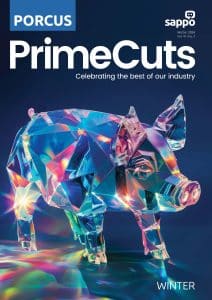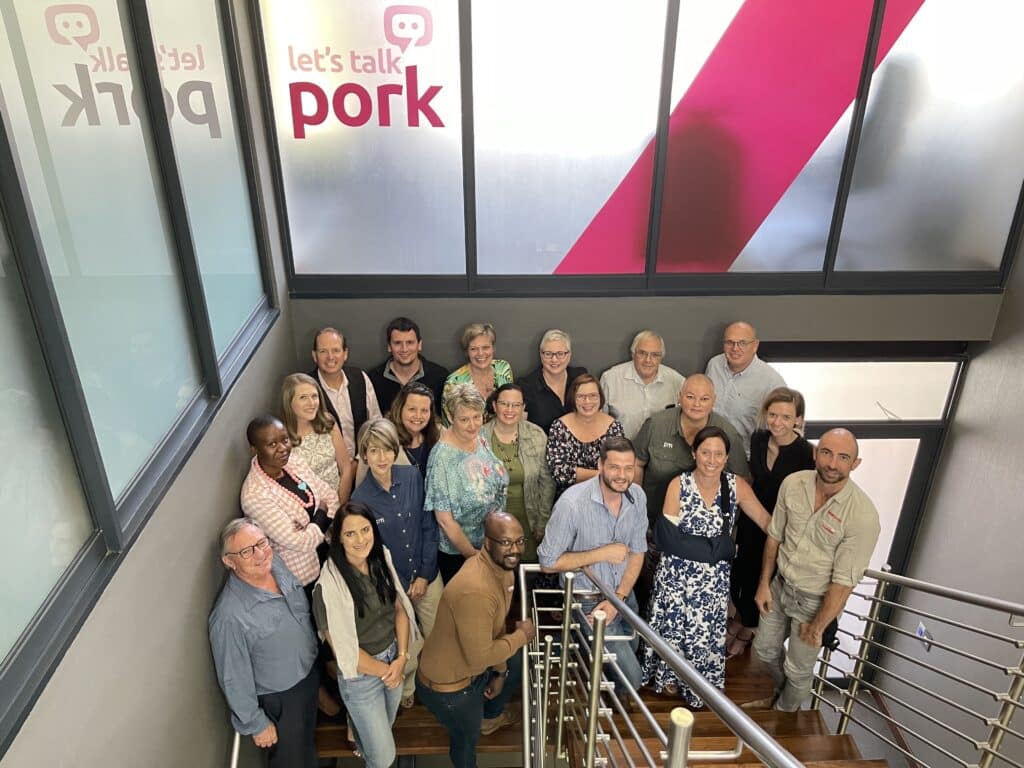The South African Pork Producers’ Organisation (SAPPO) closed off the year by inviting the media to an information session at its offices in Pretoria on Wednesday 7 December. The theme for the day was: “2022: Shifting gears for growth amid price pressures”.
Over the course of 2022, pork production has increased by 9,2%. However, pork producers remain under profit pressure due to high feed prices. Since March 2022, pork prices have remained at approximately six times that of the price of maize, 33% below the long-term average.
“Between 2015 and 2022, the average market price of pork increased by 10%, but in real terms it has decreased by 24%. This highlights the all-time low point in profitability that pig producers experienced in 2022”, said Johann Kotzé, SAPPO’s chief executive officer, on behalf of Nico Scheltema, head of business intelligence at SAPPO.
Moreover, it has become evident that the pig industry’s licence to operate will be a subscription to a dual strategy that compensates for the variance in the nature and magnitude of risk across the primary production landscape. “This twofold strategy will consist of a portfolio of interventions which is pinned on the existing sustainability practices embedded in Pork 360 and the developmental impact of a range of business development interventions,” said Jolanda Andrag, SAPPO’s chief operating officer. “Pork 360 remains a valuable risk management mechanism and is increasingly a key pillar of the industry’s future sustainability,” agreed Dr Peter Evans, SAPPO’s head of consumer assurance.
SAPPO has partnered with PwC South Africa a to craft a robust sustainability framework considering a diverse set of stakeholders and needs to achieve long-term positive systemic change. This was done with the strategic objective to identify a set of viable sustainability criteria that could satisfy the needs of financiers based on local and international frameworks applicable to the pork industry. SAPPO aligned existing sustainability practices within Pork 360 with these standards. SAPPO is now well-positioned to further discussions with industry role players and explore how a sustainability framework could be implemented in the industry.
Concurrently, SAPPO is also expanding its developmental impact through the combination of a viable mentorships programme, farmers’ days, developmental advisory services, and educating digital communications. Moreover, SAPPO has signed a memorandum of understanding (MOU) with the Western Cape Department of Agriculture on farmer development. This will greatly improve SAPPO’s positioning in partnering with extension officers and farmers in the Western Cape. “SAPPO’s reach into deep rural areas continues to grow and its partnerships with various input suppliers amplifies its impact,” said Kgadi Senyatsi, head of business development at SAPPO.
In its endeavour to educate consumers about pork, SAPPO revised the strategic intent of its marketing campaigns to highly impactful social media and innovative QR campaigns. “The objective is to increase the perceived value of pork and heighten our reach in non-traditional pork audiences,” said Christian Zimelka, SAPPO’s head of consumer education.
Overall, the industry remains confident about its future. Looking ahead, producers will have to find innovative ways to improve cost efficiencies and draw resilience from its agility. SAPPO remains well-positioned to enable the sustainability of the industry.
Johann Kotzé
The South African Pork Producers’ Organisation (SAPPO) coordinates industry interventions and collaboratively manages risks in the value chain to enable the sustainability and profitability of pork producers in South Africa.









